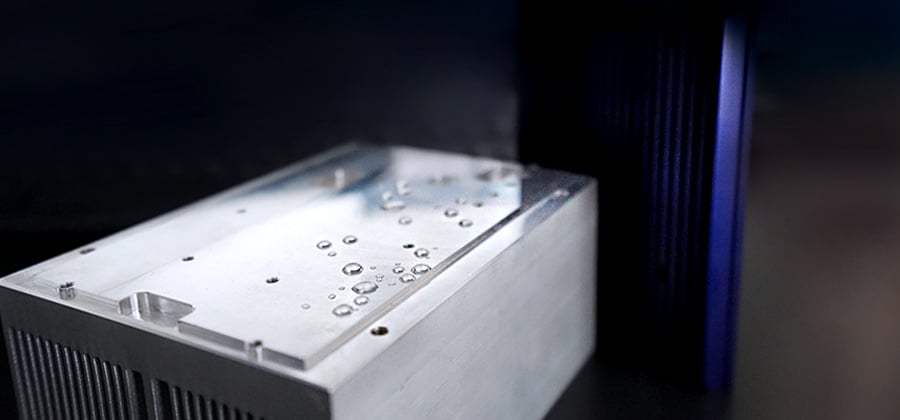
Neglect the Rth Value When Selecting Your Heat Sink
Published: 15.11.2024
When selecting a heat sink for your system, there are several factors to consider. If you search for “heat sink selection,” you will likely encounter...
Author: Benedikt Lausberg
In today’s technology for cooling power electronic components, nanocoatings play a significant role. These extremely thin layers enhance heat transfer, prevent corrosion, and also improve the efficiency and lifespan of cooling systems.

Our innovative nanocoating is an advanced solution for the long-term surface protection of coolers. It is a fluorine-doped, colorless, thin liquid single-component coating that is thermally cross-linked and specially designed for indoor use. Once cured, the coating can no longer be overpainted and forms a pore-free, durable protective layer that withstands the highest demands.
The coating is particularly suitable for substrates such as aluminum, copper, stainless steel, and other metals like nickel, zinc, chrome, and silver. This versatility makes it an ideal solution for various applications in liquid cooling systems. With a layer thickness of only 1 to 3 µm, the coating remains nearly invisible but does not affect the functionality or thermal properties of the components. Its water- and oil-repellent properties reliably protect surfaces from external influences.
A key advantage of this nanocoating is its impressive corrosion resistance. In the standardized salt spray test according to DIN EN ISO 9227, it provides protection for over 1,000 hours on aluminum. Additionally, the coating resists a wide range of chemicals, including acidic and alkaline solutions with a pH range of 4 to 11, as well as organic solvents. Even at temperatures up to 200 °C, it maintains its protective effect, making it suitable for demanding operating conditions.
Beyond its chemical and thermal robustness, the nanocoating significantly enhances the corrosion resistance of components such as copper pipes and internally structured cooling plates. It complements or replaces other galvanic or chemical surface treatments without negatively affecting the thermal conductivity of the components. Thus, it contributes significantly to the durability and efficiency of modern liquid cooling systems and represents a forward-looking solution for industrial use.
© 2026 - Cool Tec Electronic GmbH